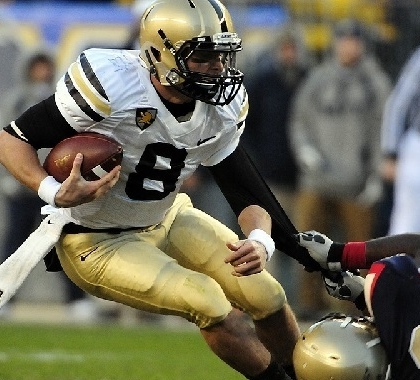The U.S. Department of Justice (DOJ) announced the Interstate Wire Act of 1961 prohibits online state lottery sales and other gambling, reversing its 2011 opinion that the law applies only to sports betting.
Since 2011, many state lotteries have begun Internet ticket sales. Delaware, Nevada, New Jersey, and Pennsylvania have legalized online gambling.
On January 15, the same day the DOJ announced the new opinion, Deputy Attorney General Rod Rosenstein sent a memorandum to U.S. attorneys across the country directing them not to take enforcement actions for 90 days in order to allow businesses “time to bring their operations into compliance with federal law.”
Dispute Over ‘Plain Language’
The Wire Act states it is a criminal offense to use “wire communication facilities” such as telephone, telegraph, and data networks “for the transmission in interstate or foreign commerce of bets or wagers or information assisting in the placing of bets or wagers on any sporting event or contest.”
In a 2001 opinion, the Fifth Circuit Court of Appeals agreed with a district court that “or information assisting” is a continuation of the preceding clause prohibiting “transmission of bets.” Therefore, only sports betting is prohibited, the court ruled. The “plain reading of the statutory language clearly requires that the object of the gambling be a sporting event or contest,” the court stated.
Similarly, the 2011 DOJ opinion memorandum, which was requested by New York and Illinois officials who wanted to sell lottery tickets online, states “sporting event or contest” in the law’s text limits the preceding phrases, “information assisting in the placing of bets or wagers” and “transmission … of bets or wagers.” Thus, it concludes, the law applies only to sports betting.
The new DOJ opinion, by Steven A. Engel, assistant attorney general in the office of the legal counsel, reaches exactly the opposite conclusion “[b]ased upon the plain language” of the law.
“There was no need for Congress to add a comma to clarify that the sports-gambling modifier applies only to the second prohibition in the first clause, because the grammar of the provision itself accomplishes that task,” Engel states.
‘Restoring the Original Interpretation’
There are differing positions on how the DOJ decision affects online lottery sales and fantasy sports leagues, and the decision could be challenged in court or reversed by new federal legislation.
The decision was applauded by the Coalition to Stop Internet Gambling, which is backed by Nevada casino owners, in a press release.
Sen. Lindsey Graham (R-SC), head of the Judiciary Committee, issued a statement supporting the decision.
“Restoring the original interpretation of the Wire Act takes great strides to protect children and society’s most vulnerable,” Graham said.
State lottery officials and the attorneys general of New Jersey and Pennsylvania protested the new opinion in public letters to the DOJ.
‘Infringes Upon Freedoms’
Barring online gambling violates basic rights, says Bartlett Cleland, counsel and chief strategy and innovation officer of the American Legislative Exchange Council and a policy advisor to The Heartland Institute, which publishes Budget & Tax News.
“Outlawing online gambling infringes upon freedoms of U.S. citizens,” Cleland said. “When the government moves to limit what we can do, by definition it is violating our inherent rights. There are several exceptions in general, but not one that calls out online gambling.”
In any case, regulating gambling is a state function, not a federal one, says Cleland.
“There should not be a federal prohibition on online gambling, not least because it is not the dominion of the federal government, at least given my reading of the U.S. Constitution,” said Cleland.
“I intentionally say gambling, because it is hard to imagine why the rights would differ whether you are playing cards, shooting dice, or wagering buying your friend lunch if your team loses the Super Bowl,” Cleland said.
Owen Macaulay ([email protected]) writes from Hillsdale, Michigan.
Internet Info
Steven A. Engel, “Reconsidering Whether the Wire Act Applies to Non-Sports Gambling,” Memorandum Opinion for the Acting Assistant Attorney General, Criminal Division, U.S. Department of Justice, November 2, 2018: https://heartland.org/publications-resources/publications/doj-opinion-wire-act-applies-to-all-internet-gambling



